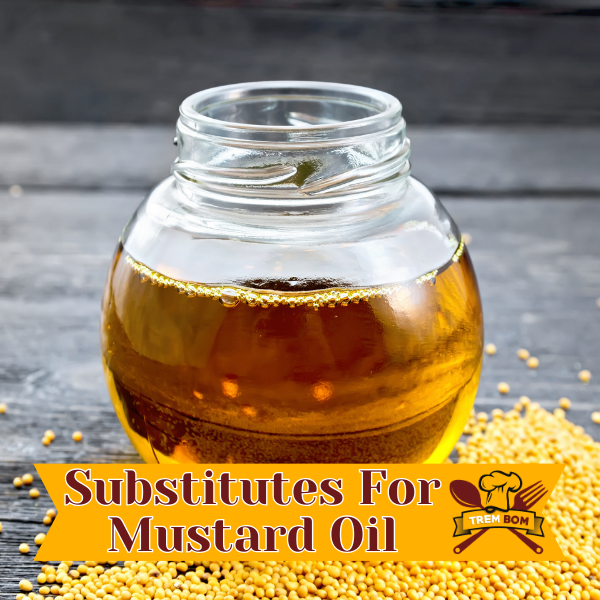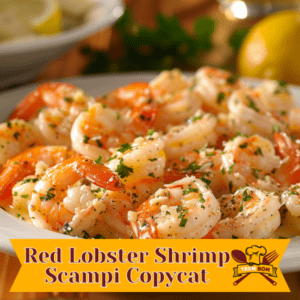
In this article, we will explore various healthy and flavorful substitutes for mustard oil that can be used in your cooking. Whether you are looking for alternative oils due to dietary restrictions or simply want to try something different, there are plenty of options available to maintain the essence of your favorite dishes.
Key Takeaways:
- Canola oil is a versatile and neutral-flavored substitute for mustard oil.
- Olive oil offers health benefits and a rich, fruity flavor as a replacement for mustard oil.
- Avocado oil is a nutritious and buttery alternative that adds a unique touch to recipes.
- Vegetable oil, such as soybean or corn oil, can be used for frying, baking, and sautéing instead of mustard oil.
- Sunflower oil provides a light flavor and can be used in various cooking methods.
Canola Oil Substitute
When it comes to finding a suitable substitute for mustard oil in your cooking, canola oil is a versatile and flavorful option. It is known for its neutral taste and high smoke point, making it an ideal choice for various cooking methods.
Canola oil provides a texture and taste that is similar to mustard oil, allowing you to maintain the essence of your dishes. Whether you are sautéing vegetables, stir-frying meats, or deep-frying snacks, canola oil can be used as a seamless replacement.
“Canola oil offers a neutral flavor profile and high smoke point, making it a perfect substitute for mustard oil in cooking.”
In addition to its culinary benefits, canola oil is also a source of healthy fats, including omega-3 fatty acids and monounsaturated fats. These fats contribute to heart health and may help reduce the risk of chronic diseases. By using canola oil as a substitute for mustard oil, you can enhance the nutritional value of your dishes without compromising on taste.
Here is a comparison table showcasing the attributes of canola oil and mustard oil:
| Attribute | Canola Oil | Mustard Oil |
|---|---|---|
| Flavor | Neutral | Distinct, pungent |
| Smoke Point | 400°F (204°C) | Approximately 480°F (249°C) |
| Nutritional Profile | Contains omega-3 fatty acids and monounsaturated fats | Rich in monounsaturated fats and polyunsaturated fats |
| Cooking Applications | Suitable for frying, sautéing, baking, and dressings | Traditionally used in Indian cuisine, ideal for tempering, frying, and pickling |
As you can see, while there are differences between canola oil and mustard oil, canola oil can successfully replace mustard oil in various recipes without compromising on taste and texture.
Olive Oil as a Replacement
When it comes to finding a healthy and flavorful substitute for mustard oil, look no further than olive oil. Renowned for its numerous health benefits and rich, fruity flavor, olive oil is a versatile option that can elevate your dishes to new heights.
One of the main advantages of using olive oil as a replacement for mustard oil is its high content of monounsaturated fats, which can help improve heart health and lower cholesterol levels. Additionally, olive oil is rich in antioxidants, such as vitamin E, which can protect against oxidative stress and inflammation.
Not only is olive oil a healthier alternative, but it also offers a wide range of culinary applications. From dressings and marinades to sautéing and roasting, olive oil can add depth and complexity to your favorite recipes.
Here’s a closer look at some of the key benefits and uses of olive oil:
| Benefits of Olive Oil | Uses of Olive Oil |
|---|---|
| Rich in monounsaturated fats | Salad dressings |
| High in antioxidants | Sautéing vegetables |
| Supports heart health | Roasting meats and vegetables |
| Reduces inflammation | Marinades for fish and poultry |
Whether you’re drizzling it over a fresh salad or using it to enhance the flavors of your roasted vegetables, olive oil is a versatile and nutritious substitute for mustard oil. Its distinct flavor profile adds a touch of sophistication to your dishes, making it a popular choice among home cooks and professional chefs alike.
In the next section, we will explore another remarkable oil alternative to mustard oil: avocado oil. Discover its unique characteristics and how it can elevate your culinary creations.
Avocado Oil Alternative
When it comes to finding a suitable alternative to mustard oil, avocado oil stands out as a nutritious and versatile option. Not only does it bring a mild and buttery flavor to your recipes, but it also offers numerous health benefits. Avocado oil is rich in monounsaturated fats and contains essential fatty acids that are good for your heart and overall well-being.
One of the reasons avocado oil is a great substitute for mustard oil is its ability to withstand high heat. With a high smoke point of around 520°F (271°C), it can be used for various cooking techniques, including frying, sautéing, and grilling. Additionally, its creamy texture and consistency make it an excellent choice for salad dressings, dips, and marinades.
“Avocado oil adds a unique touch to dishes with its mellow and slightly nutty flavor, making it a favorite among chefs and home cooks alike.”
Furthermore, avocado oil is packed with vitamins and antioxidants. It contains vitamin E, which helps protect against inflammation and oxidative stress. It also supports healthy skin and hair, making it a beneficial addition to your beauty regimen.
Whether you’re looking to replace mustard oil or simply want to try something new, avocado oil is a fantastic alternative that offers both taste and health benefits. Its buttery flavor, nutritional profile, and versatility in various cooking applications make it one of the best oils to use in place of mustard oil.
Vegetable Oil for Mustard Oil
Did you know that you can easily substitute vegetable oil for mustard oil in your cooking? Vegetable oil, such as soybean or corn oil, is a versatile option that can seamlessly replace mustard oil in various dishes. With a neutral taste, vegetable oil allows the other flavors in your recipe to shine while providing the desired texture and consistency. Whether you’re frying, baking, or sautéing, vegetable oil has got you covered. Let’s take a closer look at the benefits of using vegetable oil as a substitute for mustard oil.
Benefits of Vegetable Oil
1. Neutral Flavor: Vegetable oil’s mild taste doesn’t overpower the other ingredients, making it suitable for a wide range of dishes.
2. Versatile Use: It can be used in various cooking methods, from frying to baking and sautéing, providing consistent results.
3. Availability: Vegetable oil is readily available in most grocery stores, making it a convenient choice for those looking for a mustard oil alternative.
Try out this easy-to-make recipe that showcases the versatility of vegetable oil:
Spicy Stir-Fried Vegetables
Servings: 4 | Prep time: 15 minutes | Cook time: 10 minutes
- 1 tablespoon vegetable oil
- 1 onion, thinly sliced
- 2 bell peppers, sliced
- 1 cup broccoli florets
- 1 cup cauliflower florets
- 2 carrots, julienned
- 2 cloves garlic, minced
- 1 tablespoon soy sauce
- 1 teaspoon chili flakes
- Salt and pepper to taste
Instructions:
- Heat the vegetable oil in a large skillet over medium heat.
- Add the onion and garlic to the skillet and sauté until softened.
- Add the bell peppers, broccoli, cauliflower, and carrots. Stir-fry for 5-7 minutes until the vegetables are tender-crisp.
- In a small bowl, whisk together the soy sauce, chili flakes, salt, and pepper. Pour the sauce over the vegetables and stir-fry for an additional 2 minutes.
- Remove from heat and serve hot.
This recipe is not only packed with flavor but also showcases how vegetable oil can seamlessly replace mustard oil in Asian-inspired stir-fried dishes. Enjoy the vibrant colors, crisp textures, and tantalizing aroma!
| Oil | Smoke Point (°F) | Flavor |
|---|---|---|
| Mustard Oil | 480 | Strong, pungent |
| Soybean Oil (Vegetable Oil) | 450 | Neutral |
| Corn Oil (Vegetable Oil) | 450 | Neutral |
Note: Smoke point refers to the temperature at which an oil starts to smoke and break down, potentially affecting the flavor and nutritional profile of the dish.
With the above-listed smoke points and neutral flavors, both soybean oil and corn oil serve as excellent substitutes for mustard oil in various recipes. Make a smart choice based on your preferences and the specific dish you’re preparing.
Sunflower Oil Swap
If you’re looking for an alternative to mustard oil, consider giving sunflower oil a try. With its light flavor and versatile applications, sunflower oil can be a great substitute in various cooking methods, from frying to baking.
Sunflower oil is extracted from the seeds of sunflower plants and is known for its high smoke point, making it suitable for high-heat cooking techniques. Its mild taste won’t overpower the flavors of your dishes, allowing the other ingredients to shine.
Whether you’re sautéing vegetables or preparing a delicious salad dressing, sunflower oil can provide a similar cooking experience to mustard oil. Its neutral flavor makes it a versatile oil that can be used in a wide range of recipes without altering the taste profile.
Not only is sunflower oil a great substitute for mustard oil in terms of taste and performance, but it also offers several health benefits. It is rich in vitamin E, an antioxidant that helps protect your body’s cells from damage caused by free radicals.
Additionally, sunflower oil contains healthy unsaturated fats, including monounsaturated and polyunsaturated fats, that are beneficial for your heart health. These fats can help lower bad cholesterol levels and reduce the risk of heart disease.
“Sunflower oil is a versatile and healthy substitute for mustard oil, with its light flavor and high smoke point making it suitable for various cooking techniques.”
When swapping sunflower oil for mustard oil in your recipes, keep in mind that it may not have the exact same flavor. However, its light and neutral taste make it a versatile choice that won’t overpower the other ingredients in your dishes.
Below is a simple comparison highlighting some key attributes of sunflower oil and mustard oil:
| Sunflower Oil | Mustard Oil |
|---|---|
| Light flavor | Strong, pungent flavor |
| High smoke point | Medium smoke point |
| Neutral taste | Distinctive, slightly tangy taste |
| Rich in vitamin E and healthy fats | Contains omega-3 fatty acids |
As you can see, sunflower oil is a suitable alternative to mustard oil, especially if you prefer a milder flavor and want to benefit from its nutrient profile. Whether you’re making stir-fries, baking, or creating dressings, sunflower oil can be a reliable and healthy choice for your cooking needs.
In addition to the previously discussed options, there are several other healthy oil alternatives to mustard oil that can add new flavors and nutritional benefits to your cooking. Let’s discover these alternatives and how they can enhance your favorite dishes.
1. Coconut Oil
Coconut oil is a versatile and flavorful substitute for mustard oil. It has a distinctive tropical taste and aroma that works well in both savory and sweet dishes. Coconut oil is rich in healthy fats and can withstand high cooking temperatures, making it suitable for sautéing, frying, and baking.
2. Sesame Oil
Sesame oil offers a nutty and slightly sweet flavor that complements a variety of cuisines. This oil is commonly used in Asian and Middle Eastern cooking and can be drizzled over salads, stir-fries, and noodles. Sesame oil is known for its high antioxidant content and is a great source of vitamin E.
3. Walnut Oil
Walnut oil is known for its rich, nutty flavor and provides a distinctive taste to dishes. It is especially popular in dressings, dips, and as a finishing oil for roasted vegetables. Walnut oil is rich in omega-3 fatty acids and antioxidants, making it a healthy addition to your culinary repertoire.
4. Grapeseed Oil
Grapeseed oil is a light and neutral-tasting oil that can be used in various cooking methods. It has a high smoke point, making it ideal for frying and sautéing. Grapeseed oil is rich in vitamin E and can be a good option for those looking for a mild and healthy alternative to mustard oil.
5. Flaxseed Oil
Flaxseed oil is a nutritious oil that is rich in omega-3 fatty acids. It has a slightly nutty flavor and can be used in salad dressings or drizzled over cooked dishes as a finishing oil. Flaxseed oil should not be heated and is best used in cold preparations to preserve its nutritional value.
| Oil | Flavor | Smoke Point | Health Benefits |
|---|---|---|---|
| Coconut Oil | Tropical, nutty | 350°F (177°C) | Rich in healthy fats |
| Sesame Oil | Nutty, slightly sweet | 410°F (210°C) | High in antioxidants |
| Walnut Oil | Rich, nutty | 320°F (160°C) | Source of omega-3 fatty acids |
| Grapeseed Oil | Neutral | 420°F (216°C) | High in vitamin E |
| Flaxseed Oil | Nutty | 225°F (107°C) | Rich in omega-3 fatty acids |
These are just a few examples of healthy oil alternatives that can add depth and flavor to your cooking. Experiment with different oils to find the ones that best suit your taste preferences and dietary needs.
Experimenting with different cooking oils can not only enhance the flavors of your dishes but also provide various health benefits. If you’re looking for suitable substitutes for mustard oil in your cooking, consider these top choices:
- Canola Oil: Canola oil is a versatile option that closely resembles the texture and taste of mustard oil. It has a high smoke point, making it suitable for different cooking methods such as frying and sautéing.
- Olive Oil: Known for its rich and fruity flavor, olive oil is an excellent alternative to mustard oil. It works well in dressings, roasting, and sautéing, adding a distinct taste to your favorite dishes.
- Avocado Oil: With its mild and buttery flavor, avocado oil is another great substitute for mustard oil. It not only adds a unique touch to recipes but also provides essential fatty acids for a nutritious boost.
- Vegetable Oil: If you prefer a neutral-tasting oil, vegetable oil such as soybean or corn oil can be a suitable choice. It works well for frying, baking, and sautéing, allowing you to maintain the flavors of your dishes.
- Sunflower Oil: With its light flavor, sunflower oil is another alternative to consider when replacing mustard oil. It can be used in various cooking methods, including frying and baking, providing a subtle yet delicious taste.
By incorporating these oils into your cooking, you can explore new flavors while still maintaining the essence of your favorite dishes.
Finding suitable substitutes for mustard oil is essential for accommodating dietary preferences and restrictions while ensuring that the flavor of your dishes remains intact. Luckily, there are several alternative options that can enhance your cooking and provide unique flavors. Let’s dive into some of these substitutes:
1. Canola Oil
Canola oil is a versatile and neutral-flavored option that can be used as a substitute for mustard oil in cooking. With its high smoke point and similar texture, it allows you to maintain the essence of your favorite dishes while providing a mild and light flavor.
2. Olive Oil
Olive oil is a healthy and flavorful alternative to mustard oil. It offers a rich, fruity taste and can be used in various cooking methods, including sautéing, roasting, and even dressings. Its versatility makes it a popular choice for those looking to replace mustard oil in their recipes.
3. Avocado Oil
Another excellent substitute for mustard oil is avocado oil. With its mild and buttery flavor, avocado oil adds a unique touch to your dishes. It’s also packed with essential fatty acids, making it a nutritious option that enhances both the taste and nutritional value of your recipes.
4. Vegetable Oil
Vegetable oil, such as soybean or corn oil, can serve as a neutral substitute for mustard oil. It has a mild taste that won’t overpower the flavors of your dishes, making it suitable for a wide range of cooking methods, including frying, baking, and sautéing.
5. Sunflower Oil
Sunflower oil is another alternative to consider when replacing mustard oil. It has a light flavor that complements various recipes, from stir-fries to baked goods. Like other oils, it provides a different taste profile while maintaining the essential properties required for successful cooking.
Experimenting with these substitutes will allow you to explore new flavors and adapt your cooking to specific dietary needs. Whether you choose canola oil, olive oil, avocado oil, vegetable oil, or sunflower oil, you can confidently replace mustard oil without sacrificing taste or quality.
As we delve into the world of mustard oil substitutes, it’s important to compare the main options discussed earlier: canola oil, olive oil, and avocado oil. Each of these alternatives offers unique flavor profiles, cooking applications, and nutritional qualities. Let’s take a closer look:
Canola Oil
Flavor Profile: Canola oil is known for its mild flavor and neutral taste, making it a suitable substitute for mustard oil in various recipes.
Cooking Applications: Canola oil’s high smoke point and versatile nature make it ideal for frying, sautéing, baking, and even salad dressings.
Nutritional Qualities: This oil is low in saturated fat and a good source of omega-3 fatty acids, which are beneficial for heart health.
Olive Oil
Flavor Profile: With its rich and fruity flavor, olive oil brings a distinctive taste to dishes when used as a substitute for mustard oil.
Cooking Applications: Olive oil shines in dressings, marinades, and dips. It can also be used for sautéing, grilling, and roasting various ingredients.
Nutritional Qualities: Olive oil is praised for its monounsaturated fats and antioxidants that promote cardiovascular health and reduce inflammation.
Avocado Oil
Flavor Profile: Avocado oil offers a mild and buttery flavor, imparting a unique twist when used as an alternative to mustard oil.
Cooking Applications: Its high smoke point makes avocado oil suitable for frying, grilling, and roasting. It also works well in salad dressings and dips.
Nutritional Qualities: Rich in monounsaturated fats and vitamin E, avocado oil supports heart health, promotes skin health, and aids in nutrient absorption.
By considering these substitutes, you can choose the perfect oil to replace mustard oil in your cooking, ensuring that you maintain the essence of your favorite dishes while exploring new flavors and enjoying their health benefits.
In our quest to find suitable alternatives for mustard oil, let’s now turn our attention to two popular options – vegetable oil and sunflower oil. These versatile oils offer their unique characteristics and can be seamlessly substituted for mustard oil in various culinary applications.
Vegetable Oil
Vegetable oil, often derived from soybeans or corn, is a neutral-tasting oil that makes an excellent substitute for mustard oil. It has a high smoke point, making it ideal for frying, sautéing, and baking. The mild flavor of vegetable oil allows the other ingredients in your dish to shine while providing the necessary moisture and texture. It is a widely available and affordable option that can be easily incorporated into your favorite recipes.
Sunflower Oil
Sunflower oil offers a light and delicate flavor profile, making it a fantastic swap for mustard oil. It can be utilized in various cooking methods, including frying, stir-frying, and even baking. With its high smoke point and vitamin E content, sunflower oil enhances the texture of dishes while preserving their natural flavors. Its subtle nutty undertones add depth to any recipe, making it a favorite choice among chefs and home cooks alike.
Here’s a brief comparison of vegetable oil and sunflower oil as alternatives to mustard oil:
| Characteristics | Vegetable Oil | Sunflower Oil |
|---|---|---|
| Flavor | Mild and neutral | Light and nutty |
| Smoke Point | High | High |
| Uses | Frying, sautéing, baking | Frying, stir-frying, baking |
| Nutritional Profile | Varies based on source | Rich in vitamin E |
As you can see, both vegetable oil and sunflower oil offer similar versatility in terms of cooking applications. The choice ultimately depends on your preferred flavor profile and the nutritional benefits you seek. Feel free to experiment with these oils to discover the perfect fit for your culinary creations!
Conclusion
In conclusion, when it comes to finding substitutes for mustard oil in your cooking, you have a range of healthy and flavorful options to choose from. Whether you prefer the versatility of canola oil, the richness of olive oil, the deliciousness of avocado oil, or the neutrality of vegetable oil, each alternative can bring its own unique touch to your favorite dishes.
By incorporating these alternative oils into your cooking, you can maintain the essence of your favorite recipes while exploring new flavors and enjoying the health benefits they offer. Whether you’re sautéing, frying, or roasting, these substitutes for mustard oil provide suitable alternatives that won’t compromise on taste or quality.
So the next time you find yourself without mustard oil in your pantry or simply want to try something different, don’t hesitate to reach for canola oil, olive oil, avocado oil, vegetable oil, or sunflower oil. With these substitutes, you can elevate your cooking and continue to enjoy delicious meals without missing the distinct taste of mustard oil.
FAQ
What are some healthy substitutes for mustard oil?
Some healthy substitutes for mustard oil include canola oil, olive oil, avocado oil, vegetable oil, and sunflower oil.
Can I use canola oil as a substitute for mustard oil?
Yes, canola oil is a versatile and neutral-flavored oil that can be used in place of mustard oil in cooking.
What can I use instead of mustard oil?
Olive oil is an excellent replacement for mustard oil. It offers similar health benefits and a rich, fruity flavor.
Is avocado oil a good alternative to mustard oil?
Yes, avocado oil is a nutritious and versatile oil that can be used as a substitute for mustard oil. It adds a mild and buttery flavor to dishes.
Can I use vegetable oil instead of mustard oil?
Yes, vegetable oil such as soybean or corn oil can be used as a substitute for mustard oil. It has a neutral taste and is suitable for various cooking methods.
What about using sunflower oil instead of mustard oil?
Sunflower oil can be used as a substitute for mustard oil. It has a light flavor and is commonly used in frying, baking, and other cooking techniques.
What are some additional healthy oil alternatives to mustard oil?
In addition to canola oil, olive oil, avocado oil, vegetable oil, and sunflower oil, some other healthy oil alternatives include coconut oil, sesame oil, and walnut oil.
What are the best oils to replace mustard oil?
The best oils to replace mustard oil depend on personal preference and the specific dish you are preparing. Canola oil, olive oil, avocado oil, vegetable oil, and sunflower oil are all popular choices.
Are there any specific substitutes for mustard oil you recommend?
It ultimately depends on your taste preferences and the recipe you are making. Canola oil, olive oil, and avocado oil are all excellent substitutes with their unique flavors and health benefits.
What should I consider when choosing a substitute for mustard oil?
When choosing a substitute for mustard oil, consider the smoke point, flavor, and health benefits of the alternative oil. It’s important to select an oil that complements the flavors of your dish and suits your dietary preferences.
Can I substitute canola oil for mustard oil in all recipes?
Canola oil can be used as a substitute for mustard oil in most recipes. However, keep in mind that it may subtly alter the taste and aroma of the dish.






